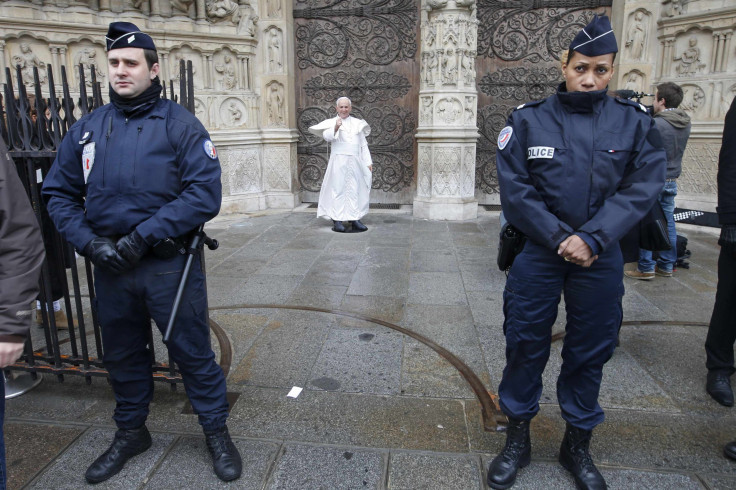French Police Calling In Sick: Officers Protest Working Extended Hours In Wake Of Charlie Hebdo Terror Attacks

Police in France who have been charged with guarding "sensitive sites" in the wake of January's Charlie Hebdo terror attacks have grown weary of being on assignment for extended periods of time. This has resulted in many law enforcement members calling in sick as a form of protest for having to work the hours of unwanted overtime.
Officers in the Compagnies Républicaines de Sécurité (CRS), a French special forces police unit, began their "sick protest" Friday in southern France, opting for that approach instead of going on strike, which is illegal, the Local reported. Since then, CRS officers in the cities of Nancy and Lyon have joined in solidarity with the officers in Toulouse by also calling in sick.
French law enforcement have spoken on and off the record over concerns that such extended hours will mean that police could be too fatigued to react appropriately if another local terror attack occurs. "The risk is that this will lead to a lack of vigilance, which means that when a real attack comes we are not reactive and therefore unable to stop it," an unidentified police spokesman told Europe 1, the Local reported.
There have been fewer reported robberies and no instances of terrorism since the offices of satirical magazine Charlie Hebdo and a Jewish delicatessen were attacked over the course of three harrowing days in and near Paris in early January, but three months later the CRS is still being mandated to stand vigil at what is being called "sensitive sites," such as schools and places of religious worship.
More than 10,000 soldiers along with about 1,000 CRS officers are currently assigned to guard more than 800 "sensitive sites" around France, and their assignments could remain in place "for months."
12 people died from the Jan. 7 Charlie Hebdo attack, which was staged by gunmen who targeted the magazine over its controversial cartoon depictions of the Prophet Muhammad. Related fatal sieges took place over the next two days, including during a hostage situation at an area delicatessen and an eventual standoff by two suspects -- brothers -- who died in a hail of gunfire after they shot at police.
© Copyright IBTimes 2025. All rights reserved.






















